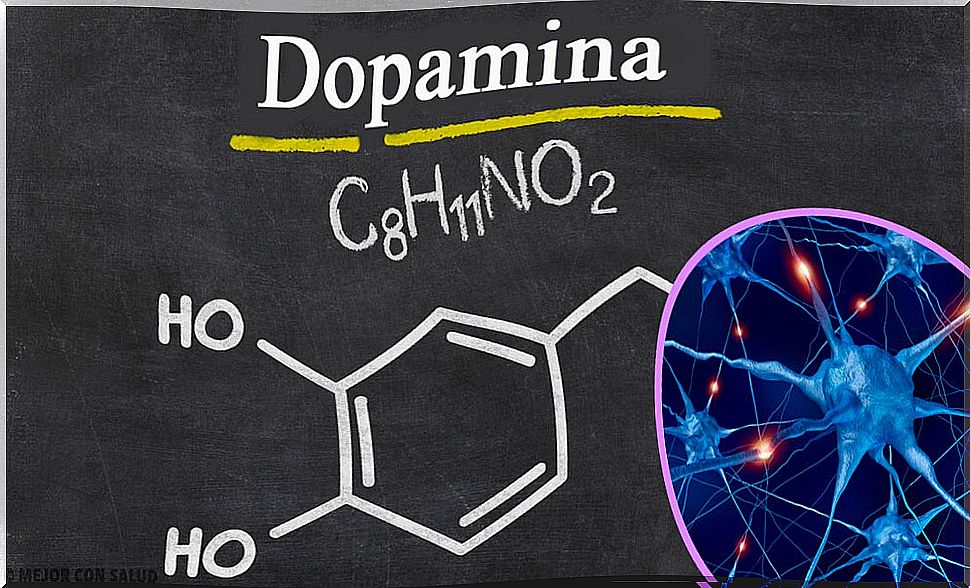Quetiapine As A Neuroleptic Drug
Quetiapine belongs to the group of atypical antipsychotic drugs that are used mainly for the treatment of schizophrenia. However, it also has other uses, such as treating bipolar disorder or, in combination therapy, depression.
Atypical antipsychotics are capable of antagonizing various neurotransmission systems. Unlike the typical ones that only act by blocking the D2 and D3 dompaminergic receptors
For this reason, the typical extrapyramidal effects of antipsychotic treatment have a lower occurrence rate when treating schizophrenia with newer antipsychotics such as quetiapine.
Before knowing the general characteristics of this drug, we must understand the disease for which it is indicated: schizophrenia. Even if it is in a general way.
What do we know about schizophrenia?

Schizophrenia is a mental illness classified as a non-affective psychosis. Psychosis is an alteration in the ability to process information.
Then, it can be defined as a psychiatric illness that occurs with dissociation and disorganization of the personality, ideation and reasoning.
These symptoms are due to an imbalance in the concentration of the neurotransmitter dopamine. There is a dopamine hyperactivity, which will lead to the development of some positive and other negative symptoms.
As for the positives, we can include those that manifest themselves actively. Within this group we highlight:
- Hallucinations
- Paranoid delusions
- Abrupt behavior
- Thought disorganization.
All these alterations can cause brain atrophy that produces negative symptoms. As examples of these we find:
- Dementia
- Impaired emotional responses
- Withdrawal from social activity.
On the other hand, quetiapine, like the other newer antipsychotics, also affects serotonin receptors. Therefore, it is suggested that this neurotransmitter is also related to psychoses.
Keep in mind that schizophrenia is a chronic disease and therefore has no cure. The drugs will only help control the symptoms.
Also, additional treatments such as therapy or family education can help the patient cope with the disease.
Quetiapine mechanism of action
Quetiapine owes its action in the treatment of schizophrenia to its ability to interact with a wide range of receptors for different neurotransmitters.
Although the mechanism of action is not fully understood, the antipsychotic effects of quetiapine could be related to its ability to reduce dopaminergic neurotransmission in the mesolimbic pathway.
This action is carried out thanks to the fact that it interacts with the domapinergic receptors D2 and D1. As well as with the 5-HT2A and 5-HT1A serotonin receptors.
It also has affinity, although to a lesser extent, with alpha 1 and alpha 2 adrenergic receptors and with histamine receptors.

It should be noted that it has a higher affinity for serotonin 5-HT2A receptors than dopamine D2. It acts, in both, as an antagonist. Unlike other atypical antipsychotics.
Pharmacokinetics
Quetiapine is an oral drug. It has a good absorption and a wide hepatic metabolism.
The main metabolites that are formed after quetiapine biotransformation do not have significant pharmacological activity. Both these and the rest of the unmetabolized drug are eliminated in the urine in 73% and in the faeces in 21%.
Regarding its bioavailability, it does not vary with the administration of food as it can happen with other drugs.
The half-life of this drug is approximately 7 hours. This means that it takes this time to eliminate 50% of its concentration in the blood.
This antipsychotic is bound to plasma proteins in a high proportion, approximately 83%.
This fact must be taken into account when administering other drugs. Well, if they also bind to a high degree to plasma proteins, they can displace quetiapine, greatly enhancing its effects, producing a serious toxic condition.
Adverse reactions
Like almost all drugs, quetiapine can develop adverse effects. The most frequent and significant are:
- Drowsiness.
- Vertigo.
- Constipation.
- Postural hypotension.
- Dry mouth

There are also other possible adverse reactions to this treatment. These can be: nausea and vomiting, depression, tremors, nervousness or akathisia.
In some cases, neuroleptic malignant syndrome has developed. This is an idiosyncratic disease characterized by:
- Catatonia
- Unstable pulse and tension.
- Hyperthermia
- High mortality.









